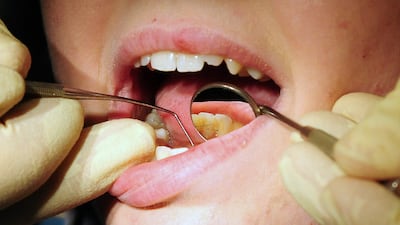Bupa Dental Care has announced plans to close 85 dental practices across the UK, affecting 1,200 staff, as the company faces systemic challenges in the industry and a national shortage of dentists.
The affected practices will either be sold, merged, or closed later this year, reducing the company's practices to 365.
Bupa provides NHS and private dental care and said that patients at the affected practices have not been able to access the NHS dental service they need.
Mark Allan, general manager for Bupa Dental Care, said that the company was committed to helping patients receive the care they need.
“For the majority of affected practices, this decision will allow commissioners to procure local providers for the NHS contract, tailoring services and investment to the needs of the local community, thereby providing a better opportunity for patients to continue access to NHS dental services,” Mr Allan said.
Bupa said it would be handing back the dental contract to the NHS for practices that are to close, meaning commissioners can find a new provider to continue treating patients in the area.

The company said that it had been unable to recruit enough dentists to deliver NHS care in many practices for months and, in some cases, years.
The national shortage of dentists is being made worse by the NHS contract model, and because of increased demand and complexity of care since the Covid-19 pandemic, Bupa said.
The industry has also been affected by inflation and higher energy prices, increasing the cost to run patient services.
The British Dental Association has previously warned that the service is “approaching the end of the road” unless the government and opposition outline a clear plan to reform and properly fund NHS dentistry.
Reports have also come to light of people attempting to perform dental procedures on themselves because of the backlog in dental care.
The practice closures have not been taken lightly, Mr Allan said. “Despite our continued efforts, the dental industry is facing a number of significant and systemic challenges that are placing additional pressure on providing patient care, in particular recruiting dentists to deliver NHS dental care.”
The company said that it would seek to redeploy affected staff where possible to different areas of the business and all the practices will remain open as usual in the meantime.
Dental system in the UK
The majority of dentists in the UK provide a mix of NHS and private services, and routine private appointments are generally allocated more time than those on the NHS.
Under the terms of their NHS contract, dental practices are required to provide a specified amount of NHS dental treatment, which may be limited in availability at certain times.
In such cases, private appointments may be available, offering greater flexibility, including evening and weekend slots.
While some dentists work exclusively with NHS patients, ensuring consistency in care, private patients have the freedom to choose their preferred dentist and maintain continuity in their treatment.
The UK has one of the best dental health records in Europe, with a ranking of six out of 26 nations, despite having a relatively low number of dentists per capita.
Waiting times for NHS dentistry have become a major problem in recent years, and many dentists are refusing to accept new NHS patients.


